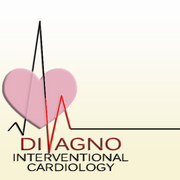An Introduction to Sodium & Heart Health

Many people know that the sodium in table salt can contribute to high blood pressure. However, fewer understand how that happens or what it means for your health. The information below explains how sodium affects your heart and your health and suggests how to limit your intake.
How Does Sodium Affect Your Heart?
Sodium is essential to life and helps control your body's fluid balance. However, it can lead to fluid retention, and too much of it in your bloodstream draws moisture into your arteries. Because the fluid volume of the blood increases, it puts greater pressure on the walls of the blood vessels.
 Long-term high blood pressure can stretch and damage vessel walls and harm the endothelial layer (the interior artery wall), which is necessary for blood clotting and blood vessel formation and inhibits inflammation and plaque formation. It also puts undue strain on your heart, which must pump harder to move a larger blood volume through damaged pathways.
Long-term high blood pressure can stretch and damage vessel walls and harm the endothelial layer (the interior artery wall), which is necessary for blood clotting and blood vessel formation and inhibits inflammation and plaque formation. It also puts undue strain on your heart, which must pump harder to move a larger blood volume through damaged pathways.
How Do You Avoid Ingesting Too Much Sodium?
Some sodium in your diet is necessary. However, most people ingest far too much. You can limit salt and sodium intake by avoiding processed foods. Nearly all packaged foods contain added sodium under various names, so you can dramatically decrease your salt intake by eating only whole foods such as fruits, vegetables, grains, dry beans, and lean, unprocessed meats.
Check labels for added salt or monosodium glutamate, and don't add table salt when cooking meals. If you must add salt to your dish, then sprinkle a little bit on the side of your plate for portion control.
If you have high blood pressure, contact the experienced heart doctors at DiVagno Interventional Cardiology in Rochelle Park, NJ. They have served residents across Bergen County for more than 20 years and are the team to consult if you experience chest pains or shortness of breath. They treat high blood pressure and high cholesterol and offer cardiac screenings to help you understand your health risks. Visit their website to learn more about the doctors or call (201) 845-3535 to arrange a consultation.
About the Business


